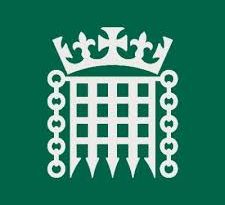Margaret Hodge – 2016 Parliamentary Question to the Department of Health
The below Parliamentary question was asked by Margaret Hodge on 2016-04-27.
To ask the Secretary of State for Health, how he plans to ensure that an additional 20,000 patients a year will have their cancers genetically tested as part of the Government’s Cancer Taskforce strategy; and what data he plans to collect on those people who are tested.
Jane Ellison
The independent Cancer Taskforce recognised the need for more accessible molecular diagnostic provision in its report, Achieving World-Class Cancer Outcomes: A Strategy for England 2015-2020, published in July 2015.
Following this, in September 2015, we confirmed a commitment from NHS England to implement the recommendations on molecular diagnostics. This will mean that around 25,000 additional people a year will have their cancers genetically tested to identify the most effective treatments. NHS England is currently working with partners across the healthcare system to produce an implementation plan to determine how best to take forward the Taskforce’s recommendations.
Regional Genetic Laboratories are central to all NHS Genomic Medicine Centres and have been the focal point for adoption of genomic technologies into healthcare for over 40 years. These laboratories are currently the focus of an NHS England Specialised Commissioning intended re-procurement exercise, the invitation to tender for which is due to be launched towards the end of the year. The re-procurement aims to create a new genomic laboratory infrastructure for the National Health Service in England based on centralised and local genomic laboratory hubs to support rare, inherited and acquired disease, as well as the future personalised medicine requirements inclusive of molecular diagnostics in stratified medicine.
In September 2015, the NHS England Board approved the development of a Personalised Medicine Strategy for the NHS, to be discussed at the NHS England Board in the summer.
This work will build on the 100,000 Genomes Project, in which the NHS is a key delivery partner. The Project will sequence whole genomes from eligible patients with rare diseases and cancers. It is moving the NHS to a new model of diagnosis and treatment based on understanding of underlying genetic causes and drivers of disease and a comprehensive phenotypic characterisation of the disease (rather than deduction from symptoms and individual diagnostic tests). This will be critical in guiding the approach to molecular diagnostics.
In addition, changes to the section 118 guidance implemented in the national tariff payment system for molecular diagnostics from April will support clinical change and practice. This includes a number of molecular diagnostic tests to be funded separately by commissioners for the first three years before being incorporated into national prices for treatment episodes.



